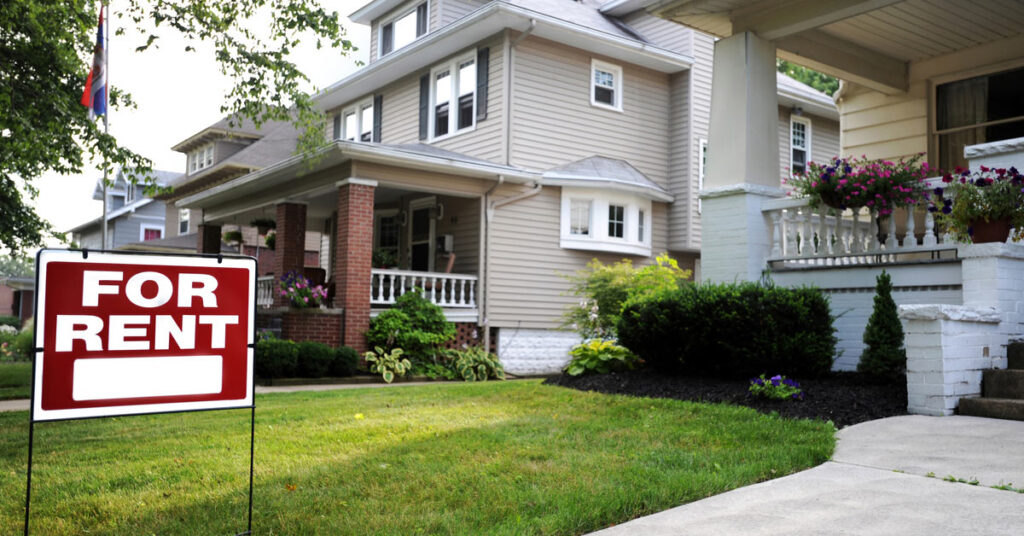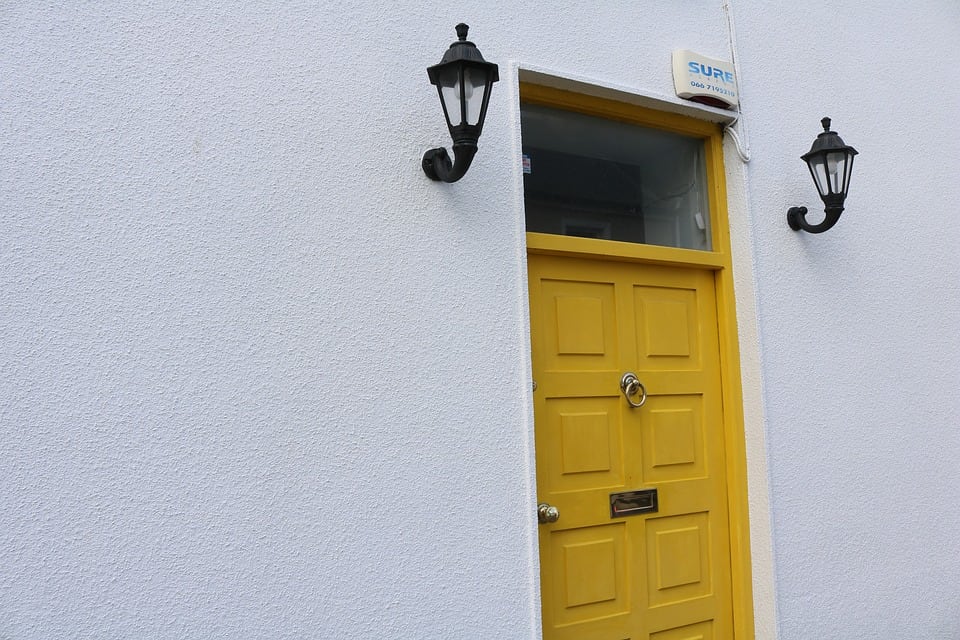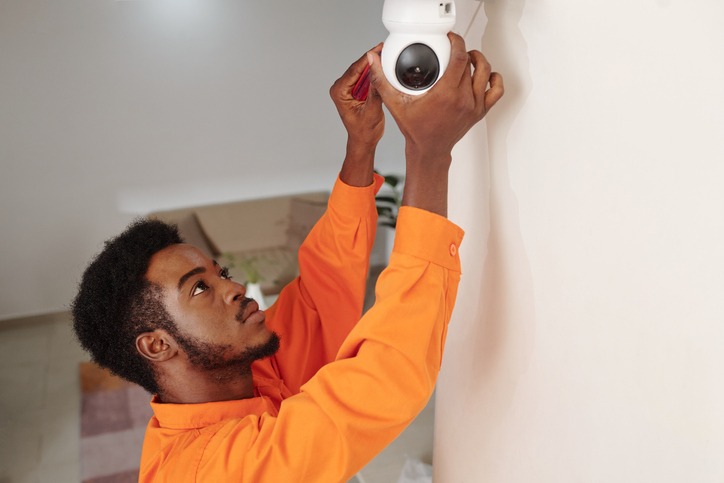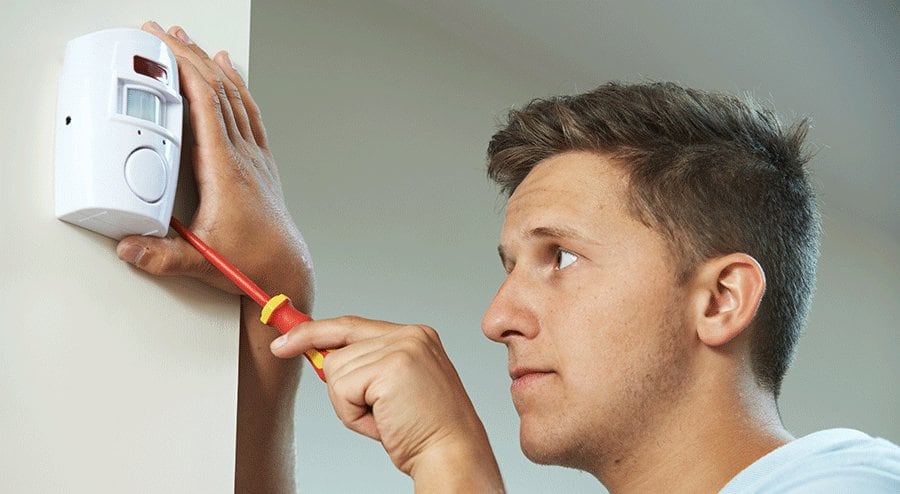Ensuring the safety of one’s home is a top priority for renters. While living in rental properties presents unique challenges, there are several effective home security tips that can enhance safety and provide peace of mind. From assessing and improving physical security to leveraging affordable home security systems and embracing smart technology, renters can take proactive measures to create a secure living environment. In this article, we will explore a range of home security tips specifically tailored for renters, empowering them to enhance the safety of their rental properties.

Assessing And Improving Rental Security
Assessing and improving the physical security of a rental property is essential for ensuring the safety and peace of mind of renters. In this section, we will delve into key considerations such as securing windows and doors, fortifying outdoor spaces, and identifying vulnerabilities to help renters enhance the overall security of their homes.
Securing Windows And Doors
When it comes to enhancing the physical security of a rental property, a good place to start is by securing windows and doors, which are common entry points for intruders. It’s crucial to ensure that the locks on windows and doors are sturdy and provide adequate protection. For rental properties, it’s often best to use non-destructive security measures that can be easily installed and removed without causing damage or violating lease agreements.
Window sash locks, window pin locks, and window security film are effective in preventing unauthorized entry through windows. Install deadbolt locks on all exterior doors for added security. Opt for high-quality deadbolts with at least a one-inch throw and hardened steel bolts.
While most rental properties come with standard door locks, adding additional security measures can significantly improve protection. Strengthen weak door frames by using door frame reinforcement kits. These kits often include metal plates and longer screws to fortify the doorjamb, making it more resistant to forced entry. Door security bars or door jammers can provide an extra layer of protection. They prevent the door from being kicked in or forced open.
Securing Outdoor Spaces
Outdoor areas such as balconies and patios are often overlooked when it comes to home security. However, securing these spaces is equally important. Ensure that the balcony or patio has secure railings to prevent unauthorized access from the outside. Apply window security film to any glass panels or sliding doors leading to the balcony or patio. This film reinforces the glass, making it more difficult to break. Place a rod or a dowel in the track of sliding doors to prevent them from being forced open.
Motion-sensor lighting is an effective deterrent for intruders. Install outdoor lights equipped with motion sensors in strategic locations around the property, such as near entryways, driveways, and other vulnerable areas. The sudden illumination can startle potential intruders and alert you or neighbors to their presence.
Identifying Weaknesses In Rental Properties
Before implementing security measures, it is crucial to assess and identify vulnerabilities in your rental property. By recognizing weaknesses, you can take proactive steps to address them effectively. Start by conducting a thorough inspection of window and door frames, looking for any signs of damage, deterioration, or weak points.
Check for cracks, gaps, or rot that may compromise the integrity of the frames. Ensure that windows and doors fit properly within their frames without any noticeable gaps. If gaps are present, weatherstripping can be used to seal them, improving both security and energy efficiency.
Next, assess all entry points, including windows, doors, and other potential access areas such as basement entrances or garage doors. Examine each entry point carefully, looking for any vulnerabilities that could be exploited by an intruder. Consider the strength and condition of locks, hinges, and frames.
To reinforce weak points, consider installing additional security measures. For windows, window locks or security film can provide an extra layer of protection against break-ins. Door reinforcements, such as door frame reinforcement kits, can strengthen weak door frames, making them more resistant to forced entry. Door security bars or jammers can also be installed to further enhance security.
Affordable Home Security Systems For Rental Properties
In this section, we explore cost-effective options for renters to enhance their home security through the implementation of affordable security systems. We will discuss the benefits of wireless security cameras and smart doorbell cameras, as well as provide guidance on notifying landlords and obtaining permission for system installations, along with temporary and portable security system alternatives.
Budget-Friendly Security Options For Renters
Wireless security cameras are an excellent choice for renters as they are easy to install and require no complex wiring. These cameras can be placed both indoors and outdoors to monitor the surroundings and deter potential intruders. Look for cameras that offer features like high-definition video quality, night vision, motion detection, and remote viewing capabilities.
Smart doorbell cameras have gained popularity due to their convenience and affordability. These devices combine a doorbell with a built-in camera, allowing you to see and communicate with visitors remotely via a smartphone app. Smart doorbell cameras often include motion sensors and can send instant alerts to your phone when someone approaches your front door.
Notifying Landlords And Obtaining Permission
When considering the installation of a home security system in a rental property, it is essential to notify your landlord and obtain their permission. Before speaking with your landlord, research different security systems and their installation requirements. Be prepared to discuss the benefits of the system and address any concerns they may have. Assure your landlord that you are willing to cover the costs of the security system and its installation. This may alleviate any financial concerns they may have.
If your landlord is not open to permanent installations, consider temporary and portable security system options. Temporary and portable security systems offer renters flexible and easy-to-install options for enhancing home security. Brands such as SimpliSafe, Ring Alarm, and Kangaroo provide cost-effective solutions that include wireless alarm systems with features like door/window sensors, motion detectors, and control panels. These systems are designed for easy setup and can be relocated as needed, ensuring renters can protect their homes without the need for permanent installations. By comparing features and prices, renters can find the ideal temporary security system that meets their specific needs and provides peace of mind.
Enhancing Security Through Smart Technology
By utilizing smart home devices like smart locks and keyless entry systems, and incorporating smart lighting and automated timers, renters can enhance their home security while enjoying the benefits of convenience and control. It is crucial to prioritize safety measures by protecting against hacking and unauthorized access, as well as ensuring the secure handling of personal information and data.
Smart Home Devices For Enhanced Security
Smart home devices offer renters convenient and effective ways to enhance their home security.
Smart locks provide an added layer of convenience and security by allowing renters to control access to their rental property digitally. With keyless entry systems, traditional keys are replaced with digital codes or smartphone apps. Renters can grant temporary access codes to visitors or service providers and receive notifications when the door is unlocked or locked. Brands like August, Yale, and Schlage offer a range of smart lock options with various features and integration capabilities.
Smart lighting systems can be used to create the illusion of occupancy when renters are away, deterring potential intruders. These systems can be programmed to turn lights on and off at specific times or controlled remotely via smartphone apps. Some smart lighting brands, such as Philips Hue or LIFX, offer features like color-changing bulbs and integration with voice assistants for added convenience.
Safety Considerations
While smart home devices provide convenience and enhanced security, it is important to consider safety measures to protect against potential risks. Ensure that the smart devices you choose have robust security features, such as encryption and two-factor authentication, to minimize the risk of hacking or unauthorized access. Regularly update the device firmware and use strong, unique passwords for all associated accounts. Avoid connecting smart devices to unsecured Wi-Fi networks and be cautious when granting permissions or sharing access with others.
Smart devices collect and store data, so it’s important to understand how the information is handled and protected. Choose reputable brands and read privacy policies to ensure your personal information is handled securely. Consider disabling unnecessary data collection features and regularly review and delete stored data if possible. Additionally, secure your home Wi-Fi network with a strong password to prevent unauthorized access to your smart devices.
Additional Safety Measures And Considerations
Additional Safety Measures and Considerations encompass important aspects beyond physical security for renters. This section covers the significance of renters insurance, providing protection against theft and damage, as well as precautions during natural disasters and emergencies, such as creating emergency kits and plans and familiarizing oneself with evacuation procedures and alternative exit routes.
Renters Insurance And Its Benefits
Renters insurance is a crucial additional safety measure that provides financial protection and peace of mind for renters. Renters insurance offers coverage for personal belongings in the event of theft, vandalism, or damage caused by covered perils such as fire or water damage. This coverage can help replace or repair your belongings, reducing the financial burden of replacing items in case of a loss.
When obtaining renters insurance, it is important to understand the coverage and policy options available. Evaluate the limits of coverage, deductible amounts, and any additional endorsements or riders that can be added for specific items or risks. Take inventory of your belongings, document their value, and keep records in a safe place, as this will facilitate the claims process if needed.
Precautions During Natural Disasters And Emergencies
Renters should also be prepared for natural disasters and emergencies. Create an emergency preparedness kit that includes essentials such as non-perishable food, water, flashlights, batteries, a first aid kit, and a battery-powered or hand-crank radio. Familiarize yourself with local emergency resources and develop a family emergency plan that includes communication methods, meeting points, and evacuation procedures.
Know the evacuation procedures established by your landlord or property management, including the locations of emergency exits and assembly points. Familiarize yourself with alternative exit routes in case the primary exits are blocked or unsafe. It’s important to practice evacuation drills to ensure everyone in your household knows what to do in an emergency.
Online Security And Identity Protection
With the increasing integration of smart home technology, it’s important for renters to protect their online security. Secure your home Wi-Fi network by enabling encryption (WPA2 or higher) and changing the default network name and password. Use a strong, unique password that includes a combination of letters, numbers, and special characters. Regularly update the router firmware to ensure it has the latest security patches.
Conclusion
implementing home security measures as a renter is crucial for enhancing safety and peace of mind in rental properties. By assessing and improving physical security, utilizing affordable home security systems, leveraging smart technology, communicating with landlords and neighbors, and considering additional safety measures, renters can create a more secure living environment. Taking steps to protect online security and identity further enhances overall safety. By being proactive and taking these measures, renters can significantly enhance their safety and well-being in their rental properties.




